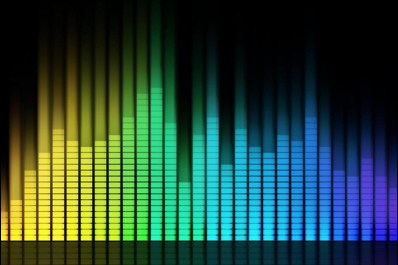Shelley, Vangelis, and Hawking
In the early 60s, I attended Muskingum College. All students were required to take The Arts, 5 hours each semester in their junior or senior year. Many of my classmates waited until they were seniors because it was a class that scared most of us. I don’t recall why I took it during my junior year. The Arts was my most transformative class in college, graduate school, or post-graduate school.
At the end of my junior year, Louie Palmer, the professor, must have seen something in me and asked me to be his teaching assistant in my senior year. Therefore, I retook the class, taught a handful of subsections of the class each week, and wrote and graded the midterms and finals each semester. Along with helping Louie teach the entire Western history of art from the caves at Altamira and Lascaux to the modern times, I repeated his mentioning Percy Shelley’s assertion, “We are all Greeks. Our laws, our literature, our religion, our arts have their root in Greece” several times during the year as his teaching assistant.
Interestingly, I have used Shelley’s quote many times since those days at Muskingum six decades ago. I taught art history as a visiting professor at DeVry and St. Francis. This is my PowerPoint slide for the chapter on the Greeks. This link is for the entire course.

I love Greece and have been there twice. Click on photos that I took on my last trip. This brings me to a Greek who was raised in Athens. His full name is Evangelos Odysseas Papathanassiou. This his name in Greek is Ευάγγελος Οδυσσέας Παπαθανασίου. However, most of the world knows him as Vangelis. He started composing music when he was four years old. As an adult, he wrote the music for Chariots of Fire, Blade Runner, and 1492: Conquest of Paradise. In the late 70s, Carl Sagan’s Cosmos: A Personal Voyage used some of his compositions. My personal favorite was the Cosmos theme, Heaven and Hell.
Interestingly, when Stephen Hawking died in 2018, he was interred beside Isaac Newton and close to Charles Darwin at Westminster Abbey.

However, Vangelis wrote the score for the memorial for Stephen Hawking. While Hawking’s remains are at Westminster, the European Space Agency (ESA) beamed Vangelis’ music along with Hawking’s words to the closest black hole, 1A 0620–00. Nevertheless, it will take approximately 3,500 years to reach it.

Interestingly, Vangelis wrote, “We are part of the universe, and the music is the code. Music is science more than art, and it is the main code of the universe.”
This is Vangelis’ tribute to Stephen Hawking.
These are Hawking’s words.
I am very aware of the preciousness of time. Seize the moment. Act now.
I have spent my life travelling across the universe inside my mind. Through theoretical physics I have sought to answer some of the great questions but there are other challenges, other big questions which must be answered, and these will also need a new generation who are interested, engaged and with an understanding of science.
How will we feed an ever-growing population, provide clean water, generate renewable energy, prevent and cure disease and slow down global climate change?
I hope that science and technology will provide the answers to these questions, but it will take people, human beings with knowledge and understanding to implement the solution. One of the great revelations of the space age has been a perspective that has given humanity on ourselves.
When we see the earth from space we see ourselves as a whole; we see the unity and not the divisions. It is such a simple image, with a compelling message: one planet, one human race.
We are here together, and we need to live together with tolerance and respect. We must become global citizens.
I have been enormously privileged through my work to be able to contribute to our understanding of the universe. But it would be an empty universe indeed, if it were not for the people I love and who love me. We are all time travellers journeying together into the future. But let us work together to make that future a place we want to visit.
Be brave, be determined, overcome the odds.
It can be done.”

The following are several fascinating videos related to Vangelis’ comment, “Music is science more than art, and it is the main code of the universe.”
Hawking’s view of his life.
This is the timeline since the Big Bang.
This video addresses in a blink of an eye.
This video is about Vangelis’ Rosetta.
This is the time-lapse of the future.
This is about Vangelis.









